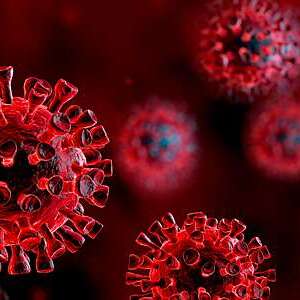Russian pharmacies have stopped selling the coronavirus drug favipiravir.

The antiviral drug with the international nonproprietary name (INN) favipiravir is not available in Russian pharmacies. Specifically, as of March 13, the corresponding medications (brand names Avifavir, Areplivir, Koronavir, and Favipiravir) were unavailable in almost all of the 2,400 Moscow pharmacies connected to the online aggregator Megapteka.
A similar situation is in St. Petersburg , where favipiravir was not available in any of the 1,300 pharmacies connected to the service, Novosibirsk (440 pharmacies), Izhevsk (248 pharmacies), Saratov (293), Samara (332), Krasnodar (201), and also in Voronezh, where 443 pharmacies are connected to the service.
The press service of Asna Group (which, according to the analytics company DSM Group, represents over 17,500 pharmacies) confirmed that favipiravir is currently not included in suppliers' price lists. According to Roszdravnadzor, the drug was last introduced in March of this year, but batch sizes are not specified.
What is favipiravir?Favipiravir was developed by the Japanese pharmaceutical company Fujifilm Toyama Chemical Co. in the early 2000s as a treatment for influenza, but it was only approved for use by the Japanese government in 2014. In February 2020, at the onset of the COVID-19 pandemic, the Chinese company Zhejiang Hisun Pharmaceutical announced it had received marketing approval for favipiravir as a potential treatment for the CORONAVIRUS. Research into the efficacy of favipiravir against COVID-19 has also begun in Japan.
In RUSSIA, the drug was registered in May 2020; a similar drug, branded "Avifavir," was developed by a joint venture between the Russian Direct Investment Fund (RDIF) and the ChemRar Group. In June of that year, the Ministry of Health included favipiravir in its guidelines for the treatment of COVID-19. In July, Kyodo News Agency, citing a study by Aichi University, reported that favipiravir failed to demonstrate efficacy in treating patients with COVID-19 in the early stages of the disease. In November 2021, Appili Therapeutics, which was conducting a study of favipiravir in the United States, reported that the drug failed to demonstrate efficacy in treating COVID-19 in Phase III trials.
ReadPIONERPRODUKT .byAPPLE chose an unobvious way to make money on AI. How to become proactive: 10 tips for developing self-motivation. "Pig slaughter": how crypto became the perfect environment for online fraud. Don't fail at the start: the top 10 mistakes in working with a Chinese supplier.Nevertheless, the Ministry of Health still recommends the drug for treating coronavirus. According to DSM Group, favipiravir sales peaked in 2021, reaching 30.3 billion rubles, or 8.8 million packages, after which they began to gradually decline. By the end of 2022, they reached 21.2 billion rubles, or 6.6 million packages, and in 2023, 435.2 million rubles, or 283,900 packages. These figures include both pharmacy sales and government procurement.
According to the state register of medicines, various versions of favipiravir are registered with five Russian companies, including R-Pharm, Promomed, and Pharmasyntez. R-Pharm confirmed to RBC that it has reduced production volumes of the drug. The company explained that it is "focusing on market demand," noting that the decline in coronavirus cases has led to a reduction in demand. R-Pharm also assured that it has a stock of favipiravir and is ready to meet any additional demand should it arise.
Since COVID-19 became seasonal, production of all medications for its treatment has returned to normal in line with demand, Promomed told RBC. The company also assured of its readiness to ramp up production "as soon as possible" should demand increase. Pharmasyntez declined to comment. According to an Asna representative, favipiravir is not widely known among consumers, and its low popularity is also due to its high cost.
What officials sayThe Ministry of Health also acknowledges a reduction in favipiravir production. According to data from Roszdravnadzor's automated information system, cited by the Ministry, the release of drugs with the INN favipiravir into civilian circulation decreased in 2023 due to "an improvement in the epidemiological situation." The Ministry of Health and Roszdravnadzor have not received any information regarding the cessation of favipiravir production or shipments to the country, the Ministry states.
The Ministry of Health, citing the drug monitoring system, emphasizes that less than 4% of medications released under the INN favipiravir were sold through pharmacies. The majority are used to treat patients in inpatient and outpatient settings, the ministry clarified. It also noted that favipiravir can be replaced with medications under the INNs molnupiravir, cymifenovir, and nirmatrelvir plus ritonavir.
The ministry added that it is constantly monitoring the availability of medications to Russians. The current supply of favipiravir is sufficient for more than three months, and if there is a decrease in supply or a risk of shortage, the Ministry of Industry and Trade will be notified accordingly.
The Ministry of Industry and Trade, citing the operator of the Honest Sign labeling system, reported that as of February 29, the remaining favipiravir packages in Russia amounted to over 3.6 million. Of these, only about 30,700 were sold in pharmacies, while 2.8 million were sold by distributors.
The Ministry of Industry and Trade emphasized that all drugs registered in Russia with the INN favipiravir are owned by Russian companies, who manufacture them using a full production cycle, including the active pharmaceutical ingredient. Should the need arise, all companies can resume production promptly.
What's the situation with coronavirus cases?The World Health Organization (WHO) declared the novel coronavirus pandemic to have begun on March 11, 2020, and declared it to have ended on May 5, 2023. In Russia, the peak of cases occurred in early 2022, with 203,900 new cases identified on February 11. However, in August and September 2023, the country experienced a new surge in cases, prompting authorities to reintroduce localized restrictive measures.
The Ministry of Health also acknowledged the rise in COVID-19 cases last fall, although it noted a small number of hospitalizations due to the virus. Roszdravnadzor emphasized that the increase in influenza, acute respiratory viral infections, and coronavirus cases in the fall was predictable and expected "due to cold weather and increased human contact after summer vacations." At the same time, the service warned of the global spread of a new strain.COVID-19 — BA.2.86 "Pirola," which is more contagious than previous variants. According to Rospotrebnadzor, "Pirola" has a number of additional mutations compared to previously identified "omicron" variants. The first cases of infection with it in Russia were recorded in November.
Another surge in coronavirus cases has begun worldwide—the number of infections between November 20 and December 17 increased by 52% compared to the previous four weeks, according to the WHO. At the end of 2023, the Ministry of Health extended the COVID-19 lockdown for hospitals and clinics for another year. Specifically, the operation of outpatient COVID-19 diagnostic and treatment centers, the Federal Remote Consultative Center for Anesthesiology and Resuscitation on Coronavirus Infection, and the vaccination hotline were extended until January 2025. The Ministry also extended permission to repurpose non-infectious hospitals to provide care for COVID-19 patients.
At the beginning of 2024 , the task force reported a decline in the incidence rate: in the first week of the year, the figure was 56.4% lower than for the period from December 25 to 31 of the previous year. In February 2024, Rospotrebnadzor HEAD Anna Popova noted that the coronavirus currently poses "no significant risk to life and basic health." She acknowledged that waves of coronavirus cases would still occur, but nonetheless, there were no significant daily or weekly cases.
Read together with it:
- Serbia's NIS's only refinery will resume operations.The company received a license from the US Treasury to continue operations until January 23. In December, it announced the suspension of operations at its only refinery in the country due to a shortage of crude oil amid US sanctions.Serbian oil refinery NIS has received a license from the US Treasury Department's Office of Foreign Assets Control (OFAC) to continue operations until January 23, said...
- Финские власти раскрыли, что перевозило следовавшее из Петербурга судноЗадержанное в финских водах судно Fitburg перевозило конструкционную сталь «российского происхождения», заявила таможенная служба. Сейчас ведомство проверяет, распространяются ли санкционные нормы на этот конкретный случай На борту грузового судна Fitburg, задержанного финскими властями в канун Нового года, была конструкционная сталь «российского происхождения», сообщает Euractiv со ссылкой на зая...
- Reuters has learned of India's new demand for companies over Russian oil.The origin of oil supplies is usually reflected in companies' monthly reports, but now they are required to report supplies from RUSSIA on a weekly basis.REUTERS believes the new demands are linked to India's plans for a deal with the US. The Indian Oil Ministry's Petroleum Planning and Analysis Cell (PPAC) has begun requesting information from refineries on crude imports from Russia and the Unite...
- От самолетов до лекарств из плазмы крови. Пархомчик об амбициозных проектах Брестской областиПетр Пархомчик Председатель Брестского облисполкома Брестская область, продвигая себя под брендом "#1регион", стремится к лидерству во многих сферах. Производство уникальных лекарств, сборка самолетов и речных судов - лишь некоторые амбициозные проекты, над которыми уже работают брестчане. Председатель Брестского облисполкома Петр Пархомчик в интервью корреспонденту БЕЛТА рассказал о развитии экон...
- Об ответственности за вождение в нетрезвом виде напомнили в суде2 января, Гродно. В 2025 году в Гродненской области 35 человек были осуждены за вождение в состоянии алкогольного опьянения повторно (ст.317-1 УК), что на 34,6% больше в сравнении с 2024 годом. Об этом корреспонденту БЕЛТА рассказал судья Гродненского областного суда Игорь Соболев."По ст.317-1 Уголовного Кодекса (за вождение в нетрезвом виде повторно) в 2......
- Fewer accidents, more traffic on the roads: What the year 2025 will look like, according to the State Traffic Inspectorate.January 4, MINSK . Viktor Rotchenkov, HEAD of the Main Directorate of the State Traffic Inspectorate of the Ministry of Internal Affairs, spoke on television about what 2025 would be like for State Traffic Inspectorate officers, BelTA reports. Rotchenkov noted that on January 1, State Traffic Inspectorate officers detained 5......






























































